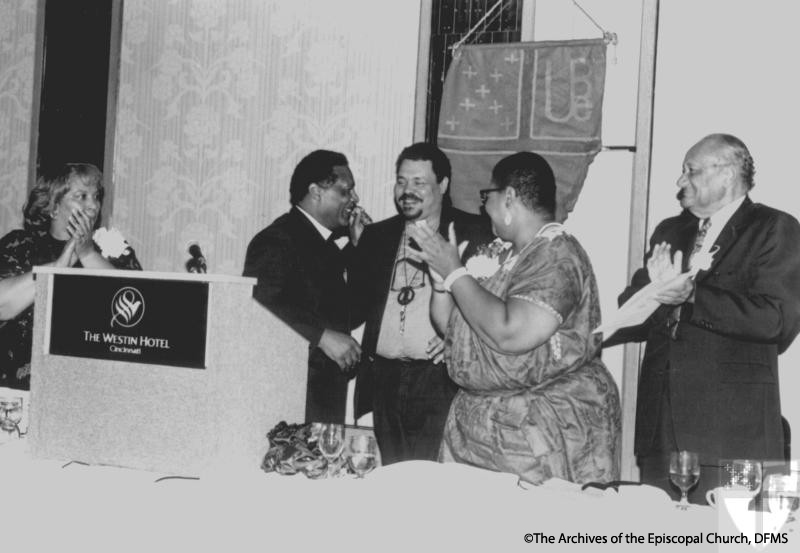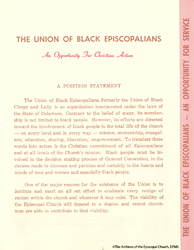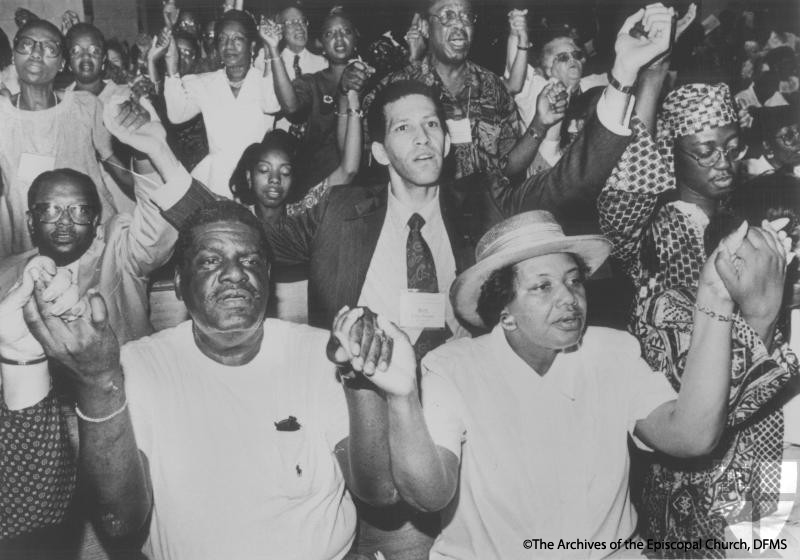UBCL and UBE
Black Union
It was inevitable that a group founded by African Americans should take the place of a group founded by whites in the Church’s civil rights and justice movement. The Union of Black Clergy and Laity made its presence known at the 1969 Special General Convention with the presentation of the Black Manifesto. Black Power as the voice of the Civil Rights movement took center stage in challenging the practice of accommodation by the Church’s governing bodies and leadership.
The organization changed its name in 1971 to the Union of Black Episcopalians (UBE). The group dedicated itself to achieving justice for all those of African descent and ministering to the specific needs of Blacks Episcopalians. The UBE continues today to fight racism in the Church and the world and encourages the involvement of Afro-Anglicans in every aspect of the life and work of the Episcopal Church. [Sources]

The Rev. Canon Edward Rodman, center, was honored by the Union of Black Episcopalians during the UBE's annual conference in Cincinnati in 1987. Making the presentation was the Rev. Franklin Turner, assistant to the bishop of Pennsylvania, left; Dr. Deborah H. Hines, president of UBE, right; and Dr. Earl H. McClenney, UBE national treasurer. Looking on, far left, is Diane Porter.



